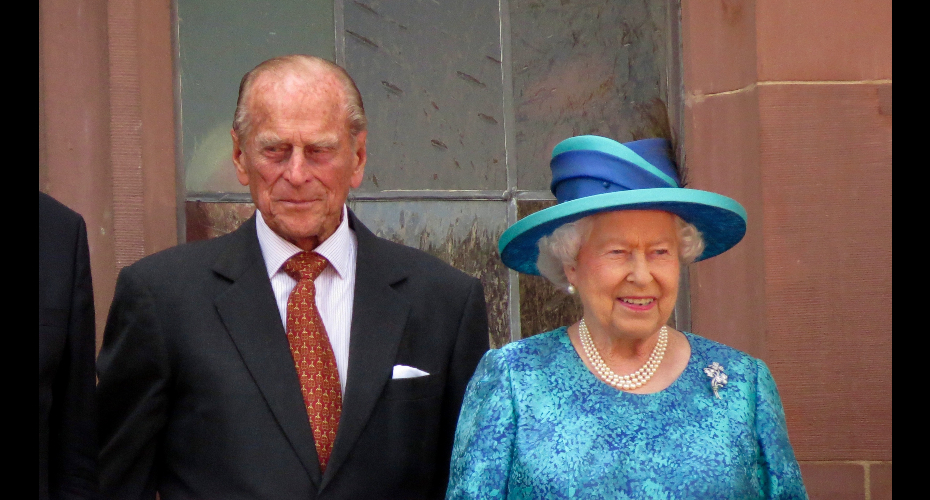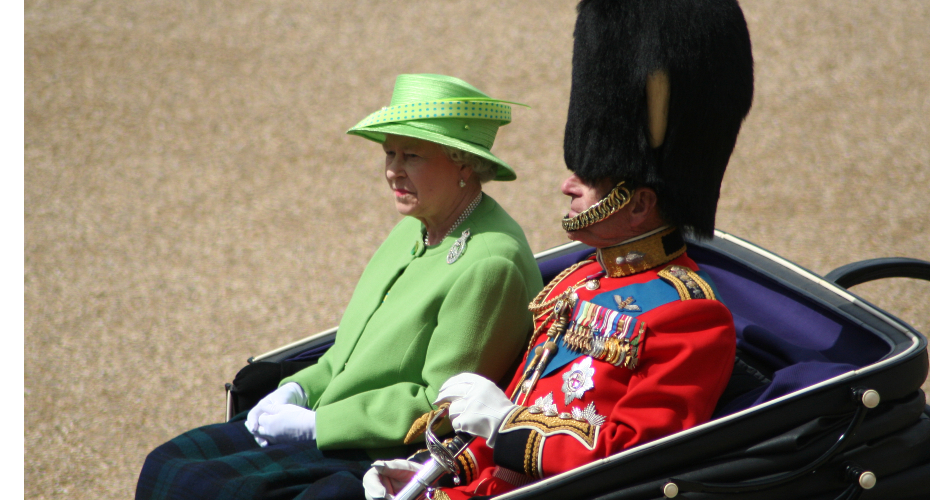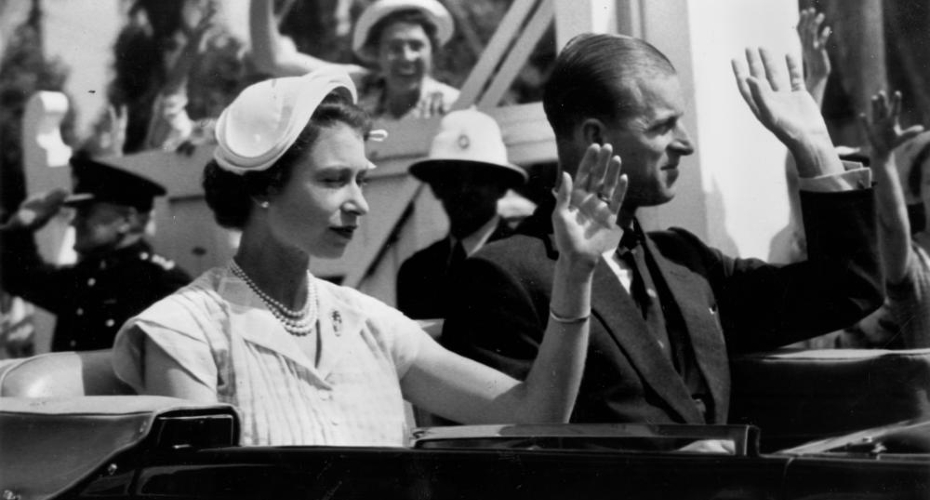Paradise Lost and regained: How ‘strength and stay’ reveals Queen Elizabeth II drew upon John Milton’s epic poem for iconic speech

Queen Elizabeth II and Prince Philip's visit to Frankfurt. Photo by Kiefer from Frankfurt, Germany via Wikimedia Commons.
Queen Elizabeth II’s iconic Golden Wedding anniversary speech that popularised the term ‘strength and stay’ was inspired and influenced by John Milton’s epic poem, Paradise Lost.
For years, it’s been assumed that the late Queen coined the expression herself for the 1997 speech in referring to the love and devotion she shared with her husband, The Duke of Edinburgh. And the phrase’s popularity reached new heights in the wake of their passing, as it was widely cited by the media to express first The Queen’s grief, and then, the nation’s.
Now, new research published by the University of Exeter has revealed how The Queen drew upon the story of Adam and Eve in Paradise Lost to express her humility and gratitude towards the public and the government at a time of constitutional crisis for the monarchy.
Published in the Royal Studies Journal, the paper, authored by Dr Philippa Earle, a Research Associate at the University, says the speech demonstrates how literate The Queen was.
“‘Strength and stay’, that magnetically poetic phrase from Queen Elizabeth II’s Golden Wedding speech, appeared in almost every headline following her death on 8 September 2022,” says Dr Earle, who is part of Exeter’s Department of English and Creative Writing. “Having gained traction after Prince Philip’s death the previous year, it was solidified in Britain’s national consciousness by the Prime Minister, when he said: ‘We remember The Duke above all for his steadfast support [of] Her Majesty The Queen. Not just as her consort, but as her husband, her ‘strength and stay’, of more than 70 years’.”
“News outlets, organisations and social media relished the memory of The Queen’s ‘strength and stay’, and she herself was declared by some the ‘strength and stay’ of the nation. Royal biographers attribute these words to Queen Elizabeth, yet we owe their pervasiveness and The Queen’s deployment of them to one of the greatest poets in the English language, John Milton.”

Dr Earle, an expert on Milton’s writings, began to research the connections between The Queen’s Golden Wedding speech and the poet after reading and hearing ‘strength and stay’ in numerous allusions in the media. She found, through researching copies of works by or about Milton in the Royal Collection, that The Queen was presented with her own copy of English Minor Poems: Paradise Lost, Samson Agonistes, Areopagitica by the publisher at a presentation dinner, barely a month after her accession to the throne in 1952.
“The gift was well considered because, as Head of State, Elizabeth could find in Paradise Lost the complex diplomatic machinery of which she was a part,” Dr Earle said. “And as another scholar has argued, the poem reflects Milton’s own diplomatic work in government as official English and Latin translator following the execution of King Charles I in 1649.”
Dr Earle said that Queen Elizabeth’s Golden Wedding speech, delivered at a ‘People’s Banquet’, was her first personal speech since the death of Princess Diana, and that, following public criticism of The Queen’s response to the tragedy, Paradise Lost helped the monarch to “unlock an extraordinary kind of diplomacy.”
Analysing the Golden Wedding speech line by line alongside Milton’s epic poem, particularly Books 9 and 10, Dr Earle reveals how The Queen took the humble appeal of Milton’s Eve for reconciliation with Adam and innovatively wove it into her own words to address the recent criticism she faced and smooth relations with Prince Philip, Tony Blair, and the public. She recognises in her speech that mistaking plays a crucial role in learning and references gaps in her knowledge. Elizabeth even modifies a traditional Church of England prayer by addressing “humble and hearty thanks” not to “Almighty God” but to the people who have “sustained” the royal family. Dr Earle explains that as head of state, The Queen traditionally has the right to be consulted, to encourage, and to warn, principles that were central to Elizabeth’s preparation for her role, but in the Golden Wedding speech the reverse is emphasised, as she acknowledges her indebtedness to others.

“This manoeuvring is key to a full appreciation of the Golden Wedding speech because, there, following a string of public humiliations in the 1990s, The Queen acknowledges implicitly the public anger fuelled by the media after the Diana crisis,” Dr Earle said. “Queen Elizabeth presents a humble, Eve-like persona in the speech, which stems from her ostensible mistake. Her words about Philip as her ‘strength and stay’ conclude a deferential discussion of politically important ‘complementary’ relationships. The anniversary of The Queen’s marriage becomes a means of communicating her humility in relation to Tony Blair, the government, and the nation.”
During the course of her research, Dr Earle discovered that The Duke of Edinburgh’s Golden Wedding anniversary speech, given the day before The Queen’s, also referenced Paradise Lost, revealing the poem’s significance to the couple while they reflected on the occasion and contemporary events. The Queen’s speech, according to Dr Earle, demonstrates how an understanding of literature underpinned Elizabeth’s diplomacy at the most turbulent time of her reign. Her use of Milton’s poem reveals to us a new insight into an important moment in the nation’s recent history.
“What is striking about Queen Elizabeth’s diplomacy in the Golden Wedding speech is its literary inspiration, its Miltonic quality,” Dr Earle concluded. “The Queen’s allusion to Milton, by ‘strength and stay’, signals the poet’s impact on Elizabeth’s diplomacy and the significance, in November 1997, of Eve’s humility in Paradise Lost. As a result, the words of John Milton, renowned literary genius—and republican—invisibly, unwittingly for the Queen’s most vocal audiences, helped recast and rehabilitate the monarchy, and are synonymous with Queen Elizabeth and Prince Philip.”
Miltonic Diplomacy in Queen Elizabeth II’s Golden Wedding Speech is published open access in the latest edition of the Royal Studies Journal.



